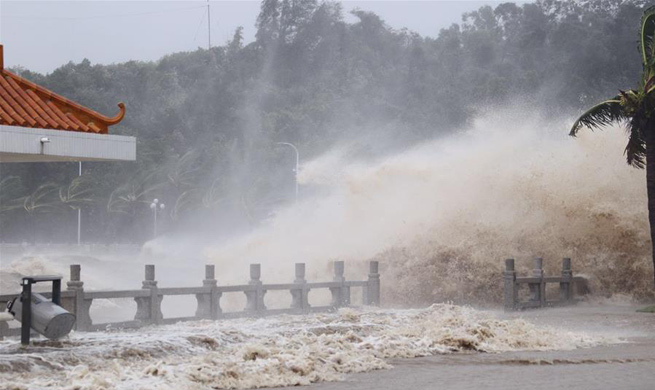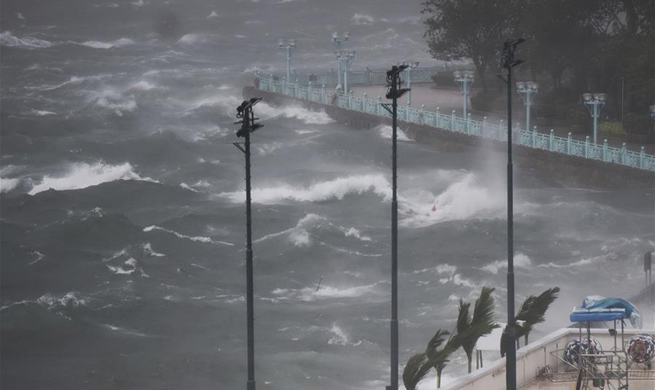by Eric J. Lyman
ROME, Aug.23 (Xinhua) -- Positive macroeconomic news continues to trickle in for Italy. But with the economic fate of the euro-zone's third largest economy closely linked to the economic health of the European Union as a whole, analysts said both sides are more dependent on each other than ever before.
Estimates for Italy's economic growth continue to inch higher. In the latest developments, ISTAT, Italy's National Statistics Institute, said the country's economy grew 0.4 percent in the second quarter and 1.5 percent over the last year. Those figures would be modest in many countries, but for Italy, it's the most robust economic growth since 2011.
In recent months, ISTAT, the Central Bank of Italy, the European Central Bank, the International Monetary Fund, the World Bank, and the Paris-based Organization for Economic Cooperation and Development have all adjusted their estimates for Italian economic growth over the rest of the year and in 2018 upward.
The biggest main driver behind the improving economy is exports, with export growth mainly to European Union members Germany, France, Britain and Spain. Those four countries accounted for more than a third of Italy's total exports last year. Seven of Italy's 10 largest trading partners are in the 28-member EU bloc.
Tourism is another key growth sector for Italy. Six of the top 10 countries providing the most tourists in Italy are from the European Union, and the top country of origin -- Germany -- each year sends around 11 million tourists to Italy, nearly as many as the next three countries on the list combined.
"If growth in the European Union slows for whatever reason, Italy will suffer more than most other European countries," Pietro Paganini, a professor at Rome's John Cabot University, and co-founder of the Competere think tank, told Xinhua.
"Even in the context of the improving growth, Italy's economy remains one of the most fragile in Europe. There's no doubt that Italy's growth is on the back of growth in Europe as a whole."
Mario Pianta, an economist with the University of Urbino, agreed. Pianta said in an interview that Italy is more dependent on the good health of the European economy as a whole.
"When Europe's economy is performing well, it becomes much less difficult for Italy to do the same," Pianta said, noting that despite the optimism around Italy's economy in recent months, models continue to its growth rate will trail that of the European Union.
But the reverse is also true, economists and commentators believe that if Italy's economy starts to falter, it could have an over-sized impact on the good health of Europe's economy.
Italy has the third largest economy in the euro zone -- trailing only Germany and France -- dwarfing the economies of other troubled euro zone economies. If Italy were to start having serious economic issues, it could start to cloud the future of the euro currency, something which would have what Riccardo Paterno, an economist with Federico II University in Naples, called a "multiplying effect."
But the good news, according to Paterno and the others, is that it appears unlikely Italy will have economic problems of that magnitude, at least in the medium term.
"Italy's economy has many problems," Paterno told Xinhua. "But it is stable enough that I think we can consider a major collapse in the coming years a very remote possibility."

















